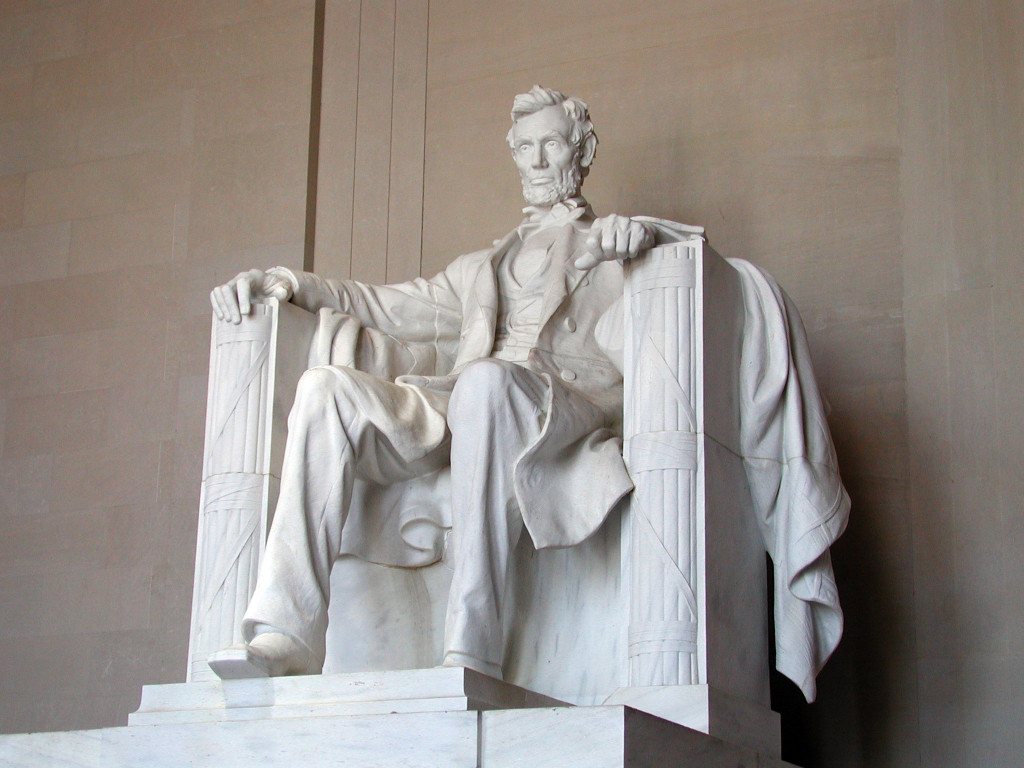Patriotism Racism Museumism
Last Friday, I aired my conversation with Teresa Bergman, author of Exhibiting Patriotism. We had taped the show several weeks before to accommodate travel schedules so our conversation did not touch upon events surrounding the removal of the Confederate flag from the South Carolina capital building, which was too bad because Teresa’s research and observations inform any discussion about interpreting topics that run counter to our national narrative. Teresa’s research illustrates how national monuments such as the Lincoln Memorial, Pearl Harbor, the Alamo and Mount Rushmore have been interpreted—and reinterpreted—within beliefs and prejudices of a specific time. Examining these changes in interpretation charts the ongoing shifts in our collective national memory and who we believe has authority over that memory. During my conversation with Teresa I was reminded of my conversations with Portia Moore about white history that is presented in many of our museums, a history that is so familiar to me that I forget to question it.
Last week I also followed the Twitter conversation #museumsrespondtoferguson hosted by Aleia Brown and Adrianne Russel. In contrast to previous conversations, this one was very focused. The hosts asked participants to read one article, I Racist, and respond: Did we “get it”? The article and discussion made an important distinction between the system of racism and individual acts, citing that many of the choices we make are shaped by a system so pernicious to render it transparent…to white people. It was a tough article to read and an even tougher Twitter discussion to follow because as a white person, it was difficult not to revert to the personal, defending my personal actions rather than accepting the fact that I perform within an oppressive system.
Racism. Patriotism. Both -isms. One is positive. The other is negative. We are proud to call ourselves patriots, but we do not want to label ourselves racists. Yet Teresa Bergman’s work shows that patriotism can fuel bigotry and hatred as much as racism can. One dictionary I consulted defined -ism as love of something. Racism is a love of (one) race to the exclusion of others. Another dictionary identified -ism as a way to denote action or practice. For instance, witticism is the act of being witty and skepticism is the practice of being skeptical. According to this source, -ism can also designate a doctrine or system. Racism is a system of oppression as is sexism and class-ism.
Last week a colleague questioned whether racism was really at the heart of social injustice given that there are so many other isms. In addition to sexism and class-ism, there is elitism, age-ism, egoism, conservatism, and atheism among many others. I’m not disagreeing that there are many areas of bigotry and oppression, each with its own ism. I encountered a lot of sexism as a young woman pursuing a science career and I am beginning to encounter age-ism with salespeople that speak loudly to me or ask what “we” would like to order. These experiences are frustrating. Some make me angry. But I have never had to have a talk with my son about the dangers he faces because of his skin color. I have never felt that I didn’t belong somewhere and I’ve never seen the stories of my ancestors relegated to exhibits about natural history.
A system of racism exists when decisions are made to spruce up the slave quarters on the estates of our founding fathers. Racism is ignoring unpleasant historic realities in favor of presenting a nostalgic look at the past. Racism is portraying Japanese Americans in the introductory film at the Pearl Harbor Memorial as active participants in espionage that led to the attacks, even though no evidence exists that this occurred.
Teresa Bergman chronicles the story of how National Park personnel listened to community groups and changed the film. I think from now on I will call this and other examples of identifying and correcting racism as museumism. It is the act of rooting out racism, unintended as it may be. It is the practice of re-examining our interpretation of historical events and museum objects to ensure that we are moving beyond white history. Museumism also signals a love of museums and the belief that they need to embrace their unique societal role as safe places to expand our national narrative.
Photo credit: Curt Banter

